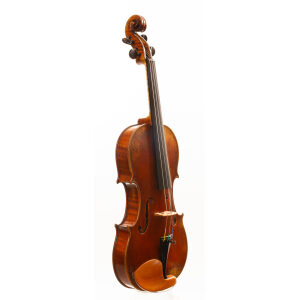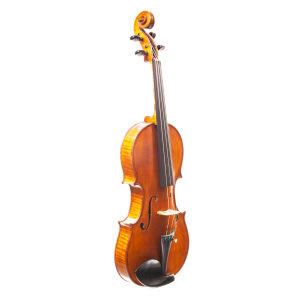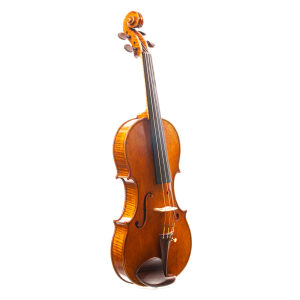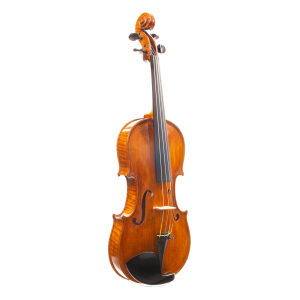Eugène Nicolas Sartory (1871-1946)
Mirecourt-born archetier Eugène Nicolas Sartory (1871-1946) studied bow-making with his father before apprenticing under Charles Peccatte and Joseph Alfred Lamy père in Paris. Sartory’s early head design indicates that he may also have learned from Joseph Arthur Vigneron, who was his relative by marriage. Lamy’s influence on the young artisan is particularly apparent, but Sartory soon developed his own robust yet elegant style.
Sartory established his own atelier at the tender age of eighteen. Between Sartory’s artistry and patronage from virtuoso violinist Eugène Ysaÿe, the workshop proved wildly successful. As his fame grew, Sartory began incorporating luxury materials into his designs to create intricate showpieces. Ysaÿe received some of Sartory’s most ornate bows in the 1920s. They were engraved “Spécialement fait pour Mr. Ysaÿe” and often boasted gold mounts and tortoiseshell frogs. Sartory had a particularly keen eye for quality wood, and his Pernambuco wood bows show remarkable strength while remaining agile and perfectly balanced.
By the start of World War I, Sartory was France’s foremost bow-maker. He left his atelier to serve in the Great War, and when he returned, Sartory brought in noted archetiers Jules Fétique, Louis Gillet, Louis Morizot, and Hermann Prell to assist him. Even as his business expanded to two workshops and its output increased to impressive levels, Sartory maintained rigorous standards.
In his lifetime, Sartory’s bows received a myriad of accolades, including Silver Medals in Bruxelles (1887) and the Lyon International and Colonial Exhibition (1894), as well as Diplômes d’Honneur from the Liège Universal and International Exposition (1905), Milan Exposizione International del Sempione (1906), and London Franco-British Exhibition (1908).




